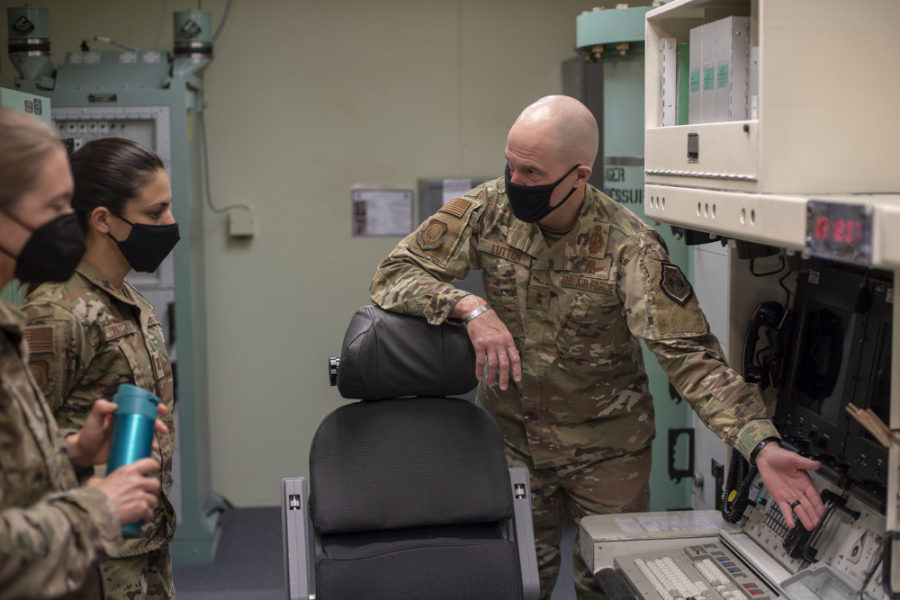A visit to China as a one-star solidified 20th Air Force Commander Maj. Gen. Michael J. Lutton’s belief that waiting to modernize America’s nuclear arsenal won’t work.
That’s because, in his view, the Chinese see treaties as a sign of weakness.
“I think the challenge is going to be on the Chinese side,” Lutton said during a virtual Mitchell Institute for Aerospace Studies event Aug. 10. “I’ll go back to that visit that I had. I was pretty amazed when we had a dialogue … where they talked about treaties.”
Lutton was part of a 2017 conversation with Chinese military academics, representatives from what he said is Beijing’s equivalent of the National War College.
“They wanted to know why the U.S. has so many treaties in the Indo-Pacific area of responsibility,” said Lutton, who oversees the Air Force’s intercontinental ballistic missiles.
The dialogue between the American military officers and Chinese academics continued, but the two sides remained an ocean apart.
“What they were still confounded by was why the United States would have a treaty because at least in these officers’ minds, treaties were an indication of weakness,” Lutton said. “Great nations don’t have treaties.”
China is not bound by strategic arms limitations treaties such New START between the United States and Russia, which was renewed for another five years in February. That treaty allows the two parties to verify each other’s nuclear reserves.
“The interesting thing on China that I find is the near complete lack of transparency,” Lutton said, describing a “very complex decision-making process” for the Chinese national security apparatus.
Lutton’s comments come on the heels of the publication of satellite data that reveals that China has constructed more than 100 new ICBM silos in deserts in the western part of its territory.
The Biden Administration is also undertaking a new Nuclear Posture Review that will outline its view of the future of America’s nuclear triad and whether 50-year-old Minuteman III ICBMs will be replaced by the new Ground-Based Strategic Deterrent over the next 10 years with a price tag of some $95 billion.
Lutton and other nuclear commanders, including U.S. Strategic Command’s Adm. Charles “Chas” A. Richard, have said there is no more time to delay and that life extensions will cost more than a new system.
Some liberal members of Congress, including House Armed Services Committee Chairman Rep. Adam Smith (D-Wash.) continue to question the need to modernize all three components of the triad or maintain the current level of missiles. In the past, Smith has argued that China has a much smaller number and that Russia is limited by treaty.
Smith made his case again in an Aug. 9 letter to President Joe Biden.
“While the cost of our nuclear modernization program has long concerned me, I have been equally concerned with the previous Administration’s complete lack of serious engagement with potential nuclear armed adversaries to pursue arms control and reduce nuclear proliferation,” Smith wrote.
Smith called on Biden to open a dialogue with China on its nuclear forces, doctrine, and intentions.
In his list of recommendations, Smith also called on the president to review the size and necessity of the land-based leg of the triad and to “independently validate the Air Force’s cost estimates” for GBSD.
Lutton agrees that the U.S. should try to negotiate with China, but he feels America will be in a stronger negotiating position with a modernized nuclear force.
“We should still try and work with the Chinese,” he said.
“I believe modernization is a critical part of that, right? Modernization is a critical part of counter-proliferation. And modernization is a critical part of nuclear nonproliferation,” he added. “It is beneficial to work with the Chinese. We’ll see if the Chinese want to work with us.”
